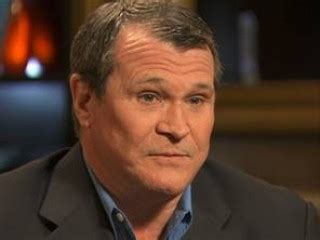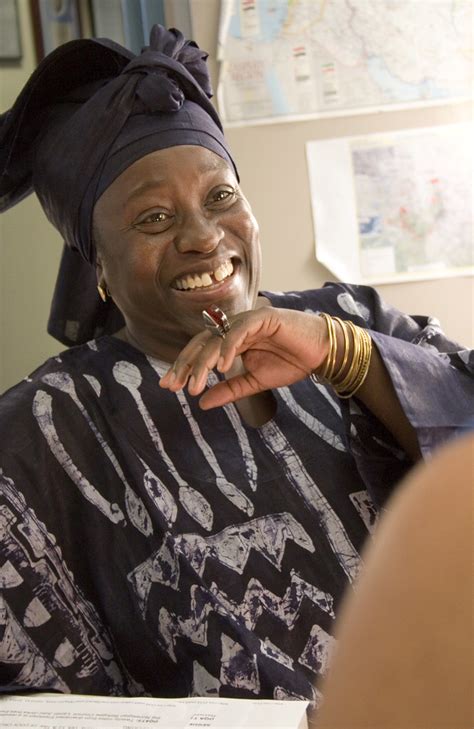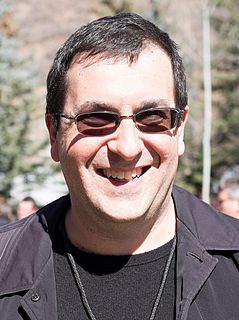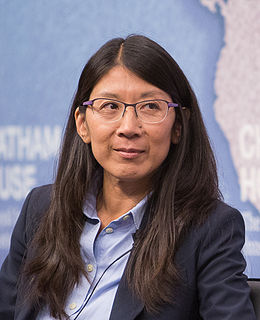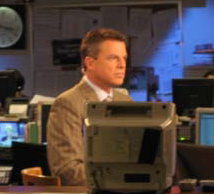Top 150 Ebola Quotes & Sayings - Page 3
Explore popular Ebola quotes.
Last updated on April 20, 2025.
How do we explain for example the Ebola epidemic in Liberia, Sierra Leone, and Guinea Conakry? Those very powers that swindled and occupied them, in the face of the serious situation of social emergency, have not even had the capacity to send doctors there. In some cases they have sent in militaries instead because that is what they are compelled to do. They have had to send military to do it because they do not even have any doctors with the willingness to risk their lives in order to help those people that are precisely paying for the consequences of years of colonization.
As life forms, viruses are just inherently interesting. It's the microworld - this universe of life too small for us to see - but it's profoundly complicated, and immensely powerful. Ebola is like a beautiful and frightening predator. There is a wonder in the operations of nature that can't be denied, even when we're the losers.
Another method (of depopulation) is disease infection through bio-weapons such as Ebola and AIDS, which are race targeting weapons. There is a weapon that can be put in a room where there are Black and White people, and it will kill only the Black and spare the White, because it is a genotype weapon that is designed for your genes, for your race, for your kind.
Certainly there was the Affordable Care Act part, then unaccompanied children [there has been a surge of children entering the country illegally and without parents, particularly in Texas], and things like, we find smallpox in an NIH lab, after 50 years? Why didn't you find it, like, five weeks ago or three years ago? There was thing after thing. But the big ones were [dealing with] the Ebola [outbreak], the unaccompanied children. [It was] perhaps a bigger challenge than I had calculated on my yellow pad as I was thinking about this role.
We have seen that [Zika virus] has caused, and is causing, a whole series of problems for pregnant women and for their unborn children, and we are seeing that it is transmitted by mosquitos, and mosquitos are a serious matter during the summer in Florida. So we are very worried about those funds not being available. There is $500 million dollars available from the Ebola money that was not used. I think it is going to be used immediately.
It's true that my research expertise is in biology: for example, the Ebola virus, the Marburg virus, and monkey pox, and not bacteriology as in the case of the anthrax organism. It's also true that I have never, ever worked with anthrax in my life. It's a separate field from the research I was performing at Fort Detrick.
I am deeply immersed in my medical work, and it can get very intense, but I believe that the connection and devotion is key. You can not work on diseases as devastating and deadly as Lassa and Ebola without complete trust and respect for the individuals with whom you work. My lab and colleagues are just extraordinary, and we are a family.
What works most effectively for quelling disease outbreaks like Ebola is not quarantining huge populations. What works is focusing on and isolating the sick and those in direct contact with them as they are at highest risk of infection. This strategy worked with SARS, and it worked during the H1N1 flu pandemic.
There comes a point in every story where you have got a reservoir of knowledge, and you are then really just adding the substantial new facts to your understanding of it. That is the easiest situation, because you can call on that reservoir, but when you get a sudden story out of nowhere, like ebola, you don't have a reservoir of knowledge.
There was something that was killing the people in the interior, in the forest area, of the country, and nobody quite knew what it was. That lasted a good three months before it was officially declared that it was Ebola virus. So it started off in Guinea and spread quite slowly, but then spread over the border into Sierra Leone and Liberia.
Thinking ahead, in 2013, the Japanese government, together with pharmaceutical companies and the Bill & Melinda Gates Foundation, established a fund for promoting research and development of medical products for neglected tropical diseases (NTDs). The importance of planning for disease outbreaks was made clear with the Ebola virus.
Outlets are turning away from phone polling, which can be problematic. For example, we did a poll for NBC around the Ebola crisis; we provided results in 24 hours. Their traditional phone poll would have taken a week to turn around. We're showing people we can do high-quality work: we've proved that with the work we do with the media.
My 4-year-old son prays every night for his best friend who is the same age - our next door neighbor in Liberia, a little Liberian boy: 'Dear God, please don't let him get Ebola.' I'm proud of him for thinking about his friend and praying for him but that's not a prayer that a 4-year-old should have to consider.
There are several hundred people who stayed in the Ebola-affected countries and continued to do the work, put themselves at great risk because medical workers are the most likely to be infected because they're helping out when the person's health is deteriorating, including quite a bit of bleeding as they're getting very, very sick.
I worked in Syria on the front lines, and you hear the plane, you hear the shell is dropping, you realize it's not on you - 'Good' - and then you see the patients coming in and take care of them. And then you have down time. With Ebola, it seems there's no down time. It seems you're always at the front line; you're always exposed.
We do not have an outbreak of Ebola in the United States. Nowhere. We do have two health care workers who contracted the disease from a dying man. They are isolated. There is no information to suggest that the virus has spread to anyone in the general population in America. Not one person in the general population in the United States.







